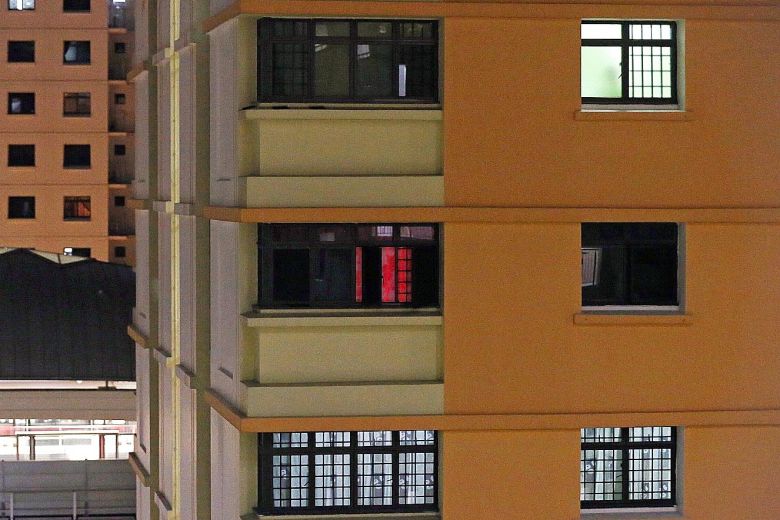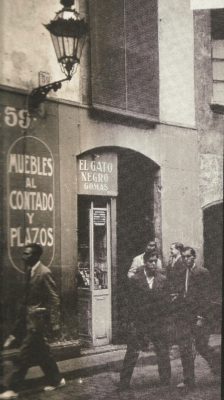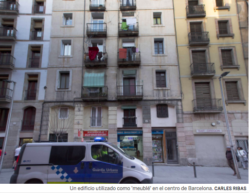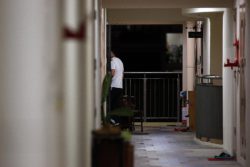 Why does it matter where you sell sex? Although most photos attached to media stories show truncated women’s bodies standing in dark streets, the news often concerns indoors: flats where migrants live and sell sex for short periods, ordinary flats rented by someone and hired out to women who fly in and fly out, making money and then moving on. British media like to call them brothels, a stupidity based on laws that prohibit more than one person at a time selling sex in indoor venues (yes, even two friends watching out for each other). Now they’re even called pop-up brothels, a cuteness deserving no further comment.
Why does it matter where you sell sex? Although most photos attached to media stories show truncated women’s bodies standing in dark streets, the news often concerns indoors: flats where migrants live and sell sex for short periods, ordinary flats rented by someone and hired out to women who fly in and fly out, making money and then moving on. British media like to call them brothels, a stupidity based on laws that prohibit more than one person at a time selling sex in indoor venues (yes, even two friends watching out for each other). Now they’re even called pop-up brothels, a cuteness deserving no further comment.
 The flats don’t conform to the widely-held idea of brothels as places where clients can drink and socialise at bars and choose amongst a number of available workers to have sex with. Brothels don’t look like residential apartments in anyone’s imagination, any more than they look like clinics, carwashes or hair salons – all disguises that have been used. In old Barcelona photos you see the term mueblé to signify a brothel somewhere inside a residential building. In the photo to the right there is a venue El Gato Negro, which may be a bar or may lead to the mueblé mentioned in the sign at the left, which could be only a room or could be a flat (gomas in the Gato sign refers to condoms). Contemporary buildings are used the same way, with or without signage (see caption in below photo).
The flats don’t conform to the widely-held idea of brothels as places where clients can drink and socialise at bars and choose amongst a number of available workers to have sex with. Brothels don’t look like residential apartments in anyone’s imagination, any more than they look like clinics, carwashes or hair salons – all disguises that have been used. In old Barcelona photos you see the term mueblé to signify a brothel somewhere inside a residential building. In the photo to the right there is a venue El Gato Negro, which may be a bar or may lead to the mueblé mentioned in the sign at the left, which could be only a room or could be a flat (gomas in the Gato sign refers to condoms). Contemporary buildings are used the same way, with or without signage (see caption in below photo).
 It doesn’t take a business-genius to figure out how to rent a house or flat and then sub-rent the space out to sex workers. Independent women do it or they find out about someone else and sub-rent from them. Nor is it difficult to buy budget air tickets online, nor, in the case of Europe and Europeans, to cross borders without showing passports. Some workers even use Air B&B, leading to outrage when homeowners want to believe chaste ‘families’ are enjoying non-sexual tourism in their rentals.
It doesn’t take a business-genius to figure out how to rent a house or flat and then sub-rent the space out to sex workers. Independent women do it or they find out about someone else and sub-rent from them. Nor is it difficult to buy budget air tickets online, nor, in the case of Europe and Europeans, to cross borders without showing passports. Some workers even use Air B&B, leading to outrage when homeowners want to believe chaste ‘families’ are enjoying non-sexual tourism in their rentals.
No wonder freelance sex work is a widespread international occupation. But despite this obvious fact, moral crusaders, police and media writers throw up their hands in horror at the supposed ‘traffickers’ who are setting flats up and then luring – that favourite word – unaware women to work in them. The assumptions are spelled out by judges at criminal trials who inevitably refer to women as vulnerable – a present-day version of innocent. In fact it all feels like the performance of a 19th-century melodrama in modern dress. And when the women protest strenuously enough that they set things up on their own, they are deported (even when selling sex isn’t prohibited – there’s always an excuse to toss them out.)
 In a story from Singapore a migrant said to a reporter: ‘We have many customers every day and have all sorts of services. But we will be leaving in two days’ time.’ They were there on ‘social visit passes’ or tourist visas, and they indicated other women would be arriving when they left. The photo intends to show the ordinariness of the environment, I suppose – these are public housing units.
In a story from Singapore a migrant said to a reporter: ‘We have many customers every day and have all sorts of services. But we will be leaving in two days’ time.’ They were there on ‘social visit passes’ or tourist visas, and they indicated other women would be arriving when they left. The photo intends to show the ordinariness of the environment, I suppose – these are public housing units.
In Barcelona a news item relates how police are aware of 20 flats where, ‘without any kind of licence rooms are rented by the hour for sexual encounters. According to sources close to the case it was the same Martínez Bordiu family who found out that the tenant to whom they had rented the flat was using it as a brothel’ (casa de citas is the old-fashioned term used).
 In The Three-Headed Dog, the migrant character Marina is working in a flat in Torremolinos, on the southern coast of Spain. When a client collapses she calls Félix Vidal:
In The Three-Headed Dog, the migrant character Marina is working in a flat in Torremolinos, on the southern coast of Spain. When a client collapses she calls Félix Vidal:
It was after midnight when I parked in front of one of the faceless white apartment blocks, near where a couple with a small child were unpacking their car. I buzzed the street door, and a voice said ‘Closed’, but then there was bumping and a clank, and the door buzzed open. The family joined me in the small lift, fiddling with bags and folding up a push-chair.
At the flat, Marina let me in quickly, her hair springing out around her face like a great black halo. She pulled me into a room and closed the door on four young women in shorts and T-shirts huddled together looking scared. It was a bedroom conceived for a child in the original plan, so the double-sized bed that had been installed took up most of the space. A skimpy whip hung next to a red heart on the wall. On the floor beside the bed lay a man. Marina said, ‘He had some kind of attack. He was still conscious when I called you.’ I checked: he was breathing faintly.
The anonymity and ordinariness of houses, flats, apartments is preferred by a lot of workers and clients alike: people who don’t want bars, socialising, dance floors or fancy atmosphere. To call them brothels is to really stretch the imagination of already tired spectators at the Sex Work Wars. Sex takes place in houses anyway, so what difference does it make if money changes hands?
-Laura Agustín, the Naked Anthropologist
